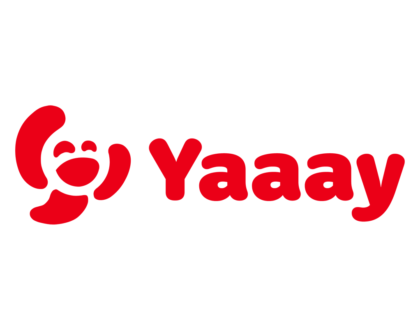The 44 Most Common Japanese Interview Questions & Answers

by Madelaine
The worst thing to happen during an interview is getting a question and not knowing how to answer. To prevent this, it’s a good idea to prepare answers to common questions and learn typical question patterns and vocabulary. This list will help. Use the links below or the table of contents to jump to questions about…
The Classics・The Company・Work Experience・Yourself・Problem-solving Abilities・(Living in) Japan・Your Student Life・ Your Private Life
You can also download a PDF version of the questions in this article by clicking the link below.
コンテンツ
The classics (hard to avoid)
1. Introduce yourself
→ 自己紹介をお願いいたします。
Prepare a short monologue (under 60 seconds), including your educational background, most recent activity, and a bit of personal information like extracurriculars.
2. Explain your strengths / weaknesses.
→ あなたの長所/短所を教えてください。
To be on the safe side, prepare around 3 each. For strengths, pick things that are relevant to the job you’re applying for. For weaknesses, choose unrelated things or things that could be interpreted as positive from a different point of view.
3. Why did you apply?
→ 応募動機を教えてください。/ 志望動機は何ですか。
→ 応募をした理由/応募したきっかけ/志望理由など。
Listen for the two keywords and don’t get thrown off by an unfamiliar phrasing. 理由is asking for the reason of application while きっかけis asking for the occasion. When answering also include how your skills or experiences qualify you for the job.
4. How do your experiences match the position?
→ あなたの経験からどんなことを弊社で活かせると思いますか。
Explain how you can draw on previous experiences for your new job. This question doesn’t explicitly ask for previous work experience. If you can connect it to things you’ll be doing at work, you can also talk about things you did at school, university, or in your free time. Make sure to use specific examples.
5. What are your skills?
→ あなたはどのようなスキルをお持ちですか?
Prepare a short rundown of your hard and soft skills. Mention certificates (if you have any), the number of months/years you’ve spent honing the skills, and examples of situations or projects where you put them to use.
6. How good is your Japanese?
→ あなたの日本語のレベルを教えてください。/ 日本語はどのぐらい話せますか。
They already can guess your level from the interview, so list some facts and numbers. Mention your JLPT level, relevant experiences, for how long you’ve been studying, and with what intensity you studied.
7. Any last questions? Is there anything that you want to say?
→ 最後に質問ありますか?/ 最後に一言ありますか?
Both questions are checking your eagerness to join the company. If you really want in, you almost certainly have questions or things you want to share. Not saying anything is going to show a lack of interest. Even if you don’t have any truly urgent things that need clearing up, use this opportunity to show that you’re thinking ahead and want to know more.
READ ON20 Final Questions for your Job Interview
Questions about the company
8. How did you find our company?
→ 何がきっかけで弊社のことを知りましたか?
Talk about what got you to notice the company. Was it a product you bought? Or did you find them when you were searching for jobs in your preferred industry? This is also a good opportunity to show what you know about their products, customers, competitors, etc.
9. Why do you want to work for our company?
→ どうしてうちの会社で働きたいと思ったのですか?
Include your research findings to point out how you fit the company, and how they can benefit from hiring you.
10. Why did you apply to this position?
→ 今回、なぜこのポジションに応募されたのですか?
→ このポジションを選んだ理由は何ですか?
Explain your reason why you are interested in the concrete position you’re applying to. Base your answer on the requirements on the company’s web page or the job ad and explain in detail what kind of what role you’re expecting to fill.
11. If you get the job what do you want to do / achieve?
→ 入社後に弊社で成し遂げたいことは何ですか?
This question checks if you have a correct understanding of what the company does and the role you play in the grand scheme of things. Really think about this one and prepare a specific answer that ties into the company goals. If you don’t know what you want to contribute, why should they hire you?
12. Is our company your first choice?
→ 弊社が第一志望ですか?
When you hear this question, the interview is as good as over. The point of the question is to check whether you will actually take the job when offered to you. If the company you’re applying to isn’t your overall favorite, think of a specific area where it is. Each company offers different opportunities, so they can each be your first choice in their own niches.
Questions about your work experience
13. What kind of work did you do so far?
→ 今まで何の仕事をしてきましたか?
Self-explanatory. Talk about your previous work experiences. When explaining what you did and the environments you worked in, make sure to create connections to the job you are interviewing for. If there are none at all, it’s better to leave those work experiences out. That being said, you can usually find some overlap, even if it’s basic things like being attentive, punctual, polite, etc.
14. Tell us about your current job.
→ 現在の仕事内容を教えてください。
While the previous question asked for any working experience, here they only want to hear about your most recent experience. Both questions are a great opportunity to highlight your skills, so stay on topic, and illustrate how you can add value to the company.
15. What have you achieved at your jobs so far?
→ 今までの仕事で達成したこと・成功したことを教えてください。
Here you need to bring data and facts. Explain your achievement by outlining the specific goal, process, and results. You probably didn’t do it all by yourself, so give some credit to others. It will highlight your teamwork skills.
16. Tell us about your […] activities.
→ 今まで行った〇〇活動について教えてください。
This is a common way to ask for experiences or skills in a specific field or area of expertise. Give detailed information, but still keep your answer concise and be careful to not start rambling.
17. Why do you want to quit your current job?
→ なぜ転職しようと思ったのですか?
→ 今の仕事を変えたい理由は何ですか?
This is a tricky one. No matter what your true reason is, never criticize a previous employer or another company – it makes you look like a person who likes to blame others. Instead, phrase your answer positively by talking about things you want to achieve or new challenges.
18. How can you benefit the company?
→ あなたの強みをどのように弊社で活かそうと考えていますか?
Explain with a specific example how you will use your strenghts to further the company’s goals. Base your answer on your company research and what you want to achieve at the position you’re applying to.
Questions about yourself
19. What are your career goals?
→ 今後のキャリアをどう考えていますか。/ 将来どんな仕事をしたいですか?
→ 将来どのような仕事をしたいですか?
→ 今後どういったポジションでどういった仕事がしたいですか?
It is okay to talk about big, far-off goals here. Just make sure that your career goals align with the position and match the company. Also, the steps you mention should at least be somewhat realistic.
20. What is your dream for the future?
→ 将来の夢はありますか?
Similar to the question above, but a bit more abstract.
Having a dream that you want to achieve shows that you’re self-driven and motivated. Interviewers want to find out if your values and life goals match the company, so consider this in your reply.
21. Where do you see yourself in X years?
→ あなたは〇〇年後、どうなっていたいと思いますか?
Questions for 3, 5, or even 10-year plans are common. So prepare accordingly. With Japanese companies, they hope that once hired, you will stay with them for the long-run.
22. Describe your personality.
→ あなたの性格について教えてください。
The point here is a spontaneous and straightforward answer. You don’t want to convey the feeling that you’re reading from a script or hiding something. You should still think about the general answer you want to give in advance so you can point out how the traits you mention fit the position you’re applying to.
23. What do people around you think about you as a person?
→ 周りからはどのような人だと思われていますか。
This question is about how you tend to be perceived by others. It can be a bit tricky to answer on your own. Try asking friends, family, or teachers for their honest input when preparing for your interview. It will help you build a stronger case for other questions too.
24. What do you look for in a company?
→ あなたにとっての就活の軸は何ですか。
→ あなたの会社選びの基準は何ですか。
This question is asking about how you want to work (tasks, environment, etc.) and which values are important to you. Maybe you want to create something or work with people, or maybe you value the atmosphere, career prospects, or room for self-development. Phrase this one positively. Convincingly bringing in the company’s values give you extra points.
Questions about problem-solving
25. What do you do when you are about to miss a deadline.
→ 締め切りがまもれなさそうな時はどうしますか。(どのように対処しますか。)
This is a question about how you perform under stress. At Japanese companies, communication (especially between subordinates and superiors) and teamwork are widely considered to be more important than any individual’s skills. Your answer should probably start with you talking to someone.
26. How would you solve a problem at work?
→ 仕事上問題が発生したら、どう解決しますか。
This question is pretty vague, so it’s pretty easy to start rambling. How you solve a problem depends on the specifics of the situation. Unless you’re given more points to go by, give a general answer that’s in line with basic rules such as keeping everyone informed and preparing measures to make sure that the escalation doesn’t escalate further.
27. How do you convince your boss of a new idea?
→ 新しいアイデアが出てきた時、どう上司を説得し、納得してもらいますか。
At Japanese companies, you’re typically asked to confirm most new things you do with your superior first, so being able to convince them of a new idea is a key skill. Keep in mind things like efficiency, proof of some kind, an action plan, a concrete goal, etc.
28. What type of person don’t you get along with well?
→ 職場でうまく付き合えない人はどんな人ですか?。
→ 苦手なタイプはありますか?
→ そのような人とはどうやってうまく付き合いますか?
Don’t get tricked into giving a specific answer. Keep it general. In the end, it all depends on who exactly your dealing with, right? Focus on conveying that you get along with people well and explain how you would use your communication skills to handle a difficult situation.
29. How do you deal with a difficult person?
→ 扱いの難しい人に対して、どのように対処しますか。
Similar to the question above, but more focused on your communication strategies. Imagine you have a challenging customer. How would you approach them to create a mutually beneficial situation?
30. How do you solve a disagreement with a coworker?
→ 仕事上、意見の合わない同僚にどう接し、対応しますか。
For this question, it’s not the person, but the content that’s the problem. Dig up your mediation skills and explain how you’d respectfully find a solution without straining the relationship between you and your coworker.
Questions about (living in) Japan
31. When did you come to Japan?
→ いつ日本に来ましたか?
This question is asking only about the time and not about the why.
Questions about your reason (理由) or the occasion (きっかけ) for either coming to Japan or becoming interested in the country are common as well. In all cases, keep your answer short.
32. Why do you want to work in Japan?
→ どうして日本で働きたいのですか。
Another question to check your motivation and seriousness. From the company’s perspective, answers that make is seem like you’re just applying to get a long-term visa or show a mismatch with company values are red flags.
33. Do you think you are able to work in a Japanese environment?
→ 日本の職場環境に馴染んで働けると思いますか?
This one is checking for you compatibility and adaptability to the Japanese working environment. Companies want to avoid people that quit after a few weeks due to culture shock.
Show an understanding of culture and common etiquette, and mention previous experiences if possible.
34. How long do you plan to stay in Japan?
→ いつまで日本に住むつもりですか。
Similar to the previous question, this one too checks if you’re worth the hassle, so to say. Japanese companies hire full-time employees for the long-term and invest a lot of energy into training new employees, especially fresh university graduates. Saying that you only want to stay a few years, might not be enough to make the company want to invest in you.
Questions about your student life
35. Briefly summarize what you have done until now.
→ 大学でやってきたことを簡単に教えてください。
Prepare a short monologue about your educational background and maybe your reason for coming to Japan. Most people like it if you like their country, so it’s okay to show your enthusiasm a little bit.
36. What did you work hard on in university?
→ 学生時代に頑張ったこと(力を入れたこと)について教えてください。
→ 学生時代にもっとも打ち込んだことは何ですか?
In Japanese, this question is known as ガクチカ. It’s one of the true mainstays of Japanese job interviews for fresh university graduates. Whether it’s sports, classes, your thesis, or a personal project, give a concrete example and show that you are hardworking and committed to reaching your goals.
37. What (life lessons) did you learn as a student?
→ 学生生活で得たことは何ですか?
This one is not asking about the contents of your classes, but about things you picked up on yourself. Maybe you realized the importance of life-long learning or found out how to stay committed to your goals. The company wants to know whether you can learn from your experiences and keep developing.
38. What is the difference between a student and a regular employee?
→ 学生と社会人の違いはなんだと思いますか?
In Japan, going from student to employee status is often treated as a full reset. The common conception is that students (even they’re technically adults) don’t yet know how it is to be “out there” yet. If you don’t know how to answer this question, think about it this way: As a student, you are the consumer, paying money to receive a service. For work, you’ll need a different outlook on self-driven motivation and commitment.
Questions about your private life
39. What is your hobby/specialty?
→ 趣味・特技)は何ですか?
Show a bit of your personality, but also make sure to consider your environment and the position to applying to. If you’re aiming for a sales job, saying that you’re a hardcore shut-in otaku might not be your best pick. Neither is it advisable to show a high risk-tolerance with hobbies like say, bungee-jumping or pachinko.
40. How do you spend your free time?
→ 余暇・週末はどのように過ごしていますか?
When asking this question, employers are looking for signs that you’re investing time into your own development, even when you’re not at work. Of course, you don’t have to say that you spend literally all your free time on learning new things for work. A nicely crafted answer establishes a positive connection of some kind between work and the rest of your life.
41. Was there something memorable in a book you read recently?
→ 最近読んだ本で印象に残ったものはありますか?
Your answer to this question will be treated as an insight into your personality and interests. It’s OK to be honest, but think about what your answer implies and how it could be interpreted.
42. Share your thoughts on recent news you found interesting.
→ 最近気になるニュースについて、自分の主張を踏まえて教えてください。
Keeping up with trends and the world around you shows that you’re curious and always eager to learn. Try getting into the habit of skimming through global, Japanese, and industry news before your interview. When answering the question, avoid delicate topics and focus on things that are relevant to your job.
43. What person do you respect?
→ あなたの尊敬する人は誰ですか。
People we respect often function as our role models. Think about the characteristics commonly associated with your favorite people and what they mean to you or the ideas about your future.
44. If you were an X, what would you be?
→ あなたの〇〇に例えると何ですか?
What would you be if you were an animal? A superhero? A piece of stationery? This question might seem pointless, but it’s testing your ability for spontaneous, original thought. For your answer, think about your strengths and find an equivalent in the category you’re asked about. For example, saying you’re an antelope shows that you’re always aware of your surroundings and quick on your feet.
Conclusion
You can never know exactly which questions you get. Still, this extensive list allows you to prepare effectively and get ready for most potential questions.
During the interview, show connections to company goals and values when possible, and remember to keep your answers precise and to the point. You can always save the details for follow-up questions.
Need help preparing for your job hunt?
While it’s possible to find a job in Japan on your own, successfully going through your first job hunt all on your own can be difficult. Without any native speaker to check back with, you have no choice but to keep applying and figure things out by yourself through trial and error. If you want to prepare as much as possible, consider asking professionals for help.
Linguage Japanese Language school in Shinjuku specializes in training students for searching for a job in Japan. Aside from the classes, which are designed to equip you with Japanese abilities that you can easily apply in real-world business settings, teachers and counselors will guide you through your job hunt and correct your Japanese CVs and other documents. If you’re interested, check out our in-depth article about the school or click the button below to directly visit the homepage.
Linguage Japanese Language School




